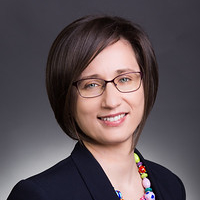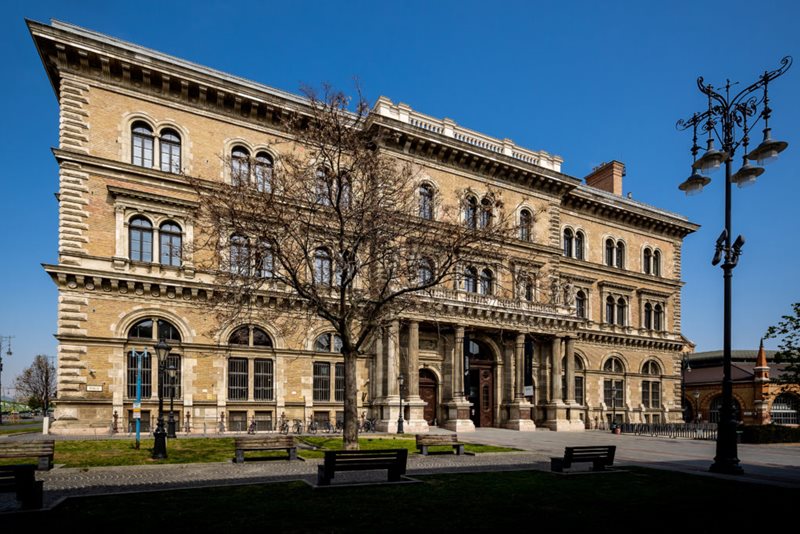Digitalisation and culture change lead to more efficient education

We spoke to Réka Vas about new master’s programmes, digitalisation, e-learning course materials, data management, educational excellence and culture change in many areas.
Among others, Réka Vas had worked on the development of the Data Science in Business Bachelor’s programme as an associate professor in the Department of Information Systems before applying for the position of Vice Rector. In her new job, she is primarily motivated by the need to improve the quality of education.
Master’s programmes – there is a lot of work to do
There are several important tasks, the first of which is to complete the development of the education portfolio. The undergraduate portfolio is almost complete, with the Politics, Philosophy and Economics (PPE) and Data Science in Business Bachelor’s programmes expected to start in 2023, and Global Connections and Communication under development as an additional undergraduate programme. According to the Vice Rector, a good, balanced portfolio has been created at the undergraduate level, building on all the competencies offered by Corvinus.
In the case of the master’s programmes, the Vice Rector for Education has a lot of work ahead as she will have to fundamentally rethink how the university’s portfolio should be transformed. As a first step, they will look at the Hungarian-language master’s programmes the University should keep, the new English-language courses that could be launched, and the areas worth considering for one-year master’s programmes.
To answer these questions, a thorough research will be carried out to assess the competencies currently needed in the labour market, and then the institution will have to figure out how to respond to these needs: “We need to create a suitable offer for our undergraduate students and the labour market, as well as for our future foreign students,” said the Vice Rector, adding that some well-specialised master’s programmes can provide students with deeper knowledge, and that it is necessary to assess in particular which areas of the labour market require such specific knowledge.
She is strongly in favour of one-year master’s programmes; there are several arguments supporting the idea, as the international market is also moving in this direction, and it is easier to attract students with work experience to participate in one-year programmes: “I would be happy to launch the first one-year master’s programmes in 2023 or 2024”.
Better learning outcomes with new methods
The Vice Rector said that in order to ensure quality education, it is essential to improve the student-teacher ratio. This was the aim of the university’s management when setting the 2021 admission scores, and Rector Előd Takáts has repeatedly stressed that if the university keeps up this process, in five years’ time the ratio of students per lecturer will be at the level of the London School of Economics.
The next step would be for the teachers to develop more intensive cooperation between themselves. According to the Vice Rector, the lecturers of each degree programme need to review the expectations of the students: “The aim is for the teachers to be aware of the assignments that the students are given in other classes and to coordinate the assignments given”.
As part of the culture change in education, Réka Vas also calls for more and more digital solutions to be used at the university. “Self-tests, e-learning materials and simulations are keeping the current generation busy and can also help students to work more intensively”.
The Vice Rector stressed that she did not want to put more burden on colleagues, but on the contrary, she wants more tasks requiring student interaction. “The aim would be to use innovative methods to increase the learning intensity of students, but at the same time not to make it much more demanding for the teachers.”

Competitive disadvantage must be avoided
In addition to the online learning materials, Corvinus should also consider producing its own materials, the Vice Rector said. This is partly about reducing the teachers’ burden and partly about the competitiveness of the university. Educational technology is evolving at an incredible rate, and if universities do not keep pace with it, they will be at a competitive disadvantage, and in the long term this could limit their internationalisation.
US universities such as Yale and Stanford are also launching Massive Open Online Courses (MOOC) programmes, which could be an excellent way to develop pre-master’s courses at Corvinus. “At the beginning of the process, the teachers will probably see it as a lot of work for them, but in a project like this we always determine subtasks. There should be a clear distinction between content development and formal delivery, i.e. the teachers create the materials and then a competent team creates the e-learning programme.”
The Vice Rector’s long-term goals include the use of artificial intelligence, but she stressed that Corvinus still has a long way to go. As a first step, we need more, better and properly structured data on, for example, what students have done, what they have achieved and how much time they have spent on it. By analysing huge amounts of data, the system could make personalised recommendations to students on what further work they should do, and what course they should choose to achieve their long-term goals.
According to the Vice Rector, the first step would be a change in attitude towards data management, i.e. the quality of data should be ensured already at the time of recording. “We need to get to the point where our data are not scattered in different Excel spreadsheets,” said Réka Vas.
Rewarding excellence in teaching
An important innovation for the near future will be the introduction of Teaching Excellence. “We need to make it part of the university culture to value the quality of education and reward excellence in teaching,” said Réka Vas, while acknowledging the concerns that this might raise.
The Vice Rector said that the basic concept has already been developed, and the next step will be to create a proper evaluation system that can be accepted by the colleagues. A dialogue with the colleagues will be initiated accordingly. She has also promised the simplest possible form to provide the data required: “If necessary, we will also provide the necessary technological background and support to ensure that data recording does not take up too much of our colleagues’ time”.